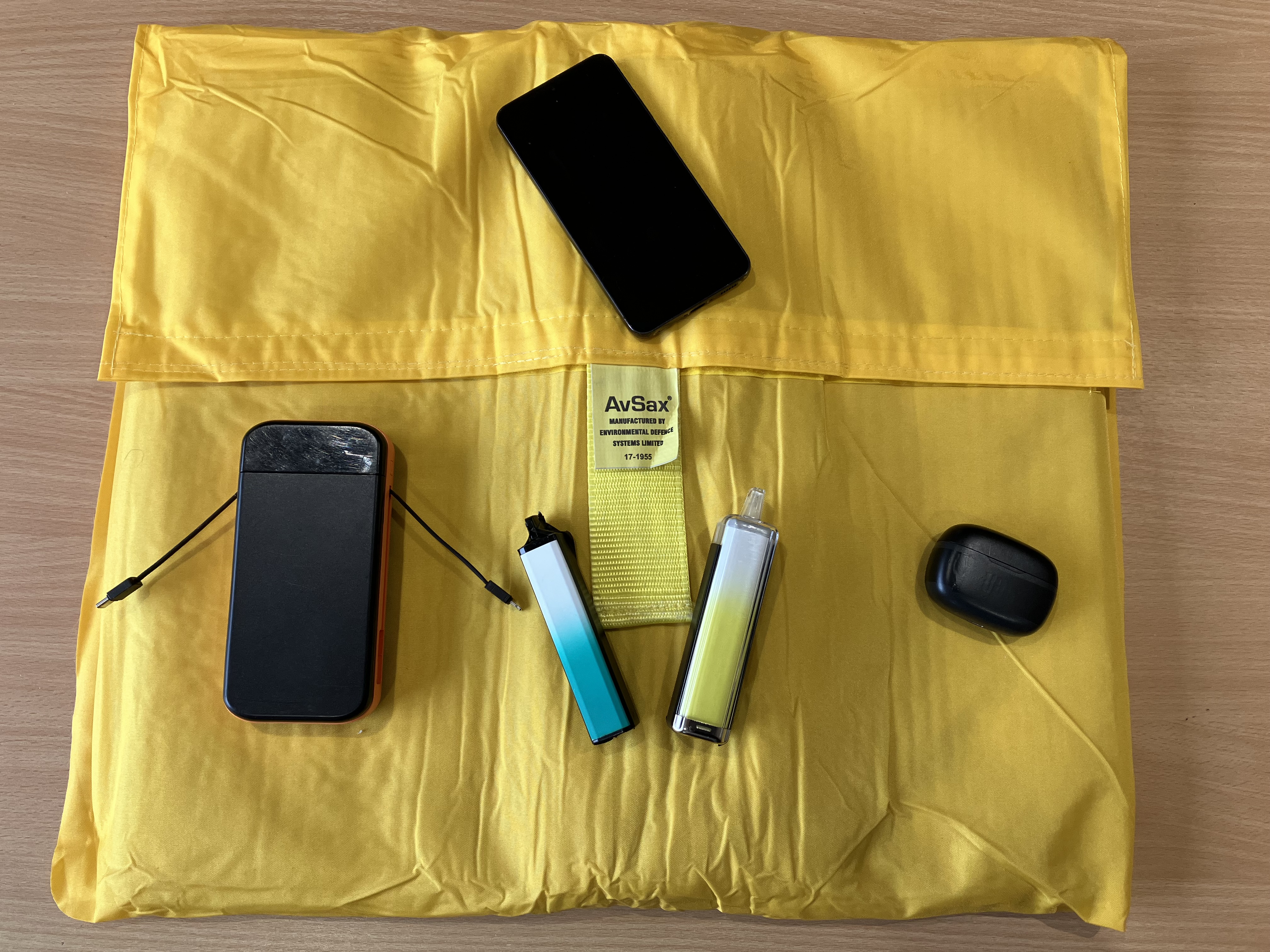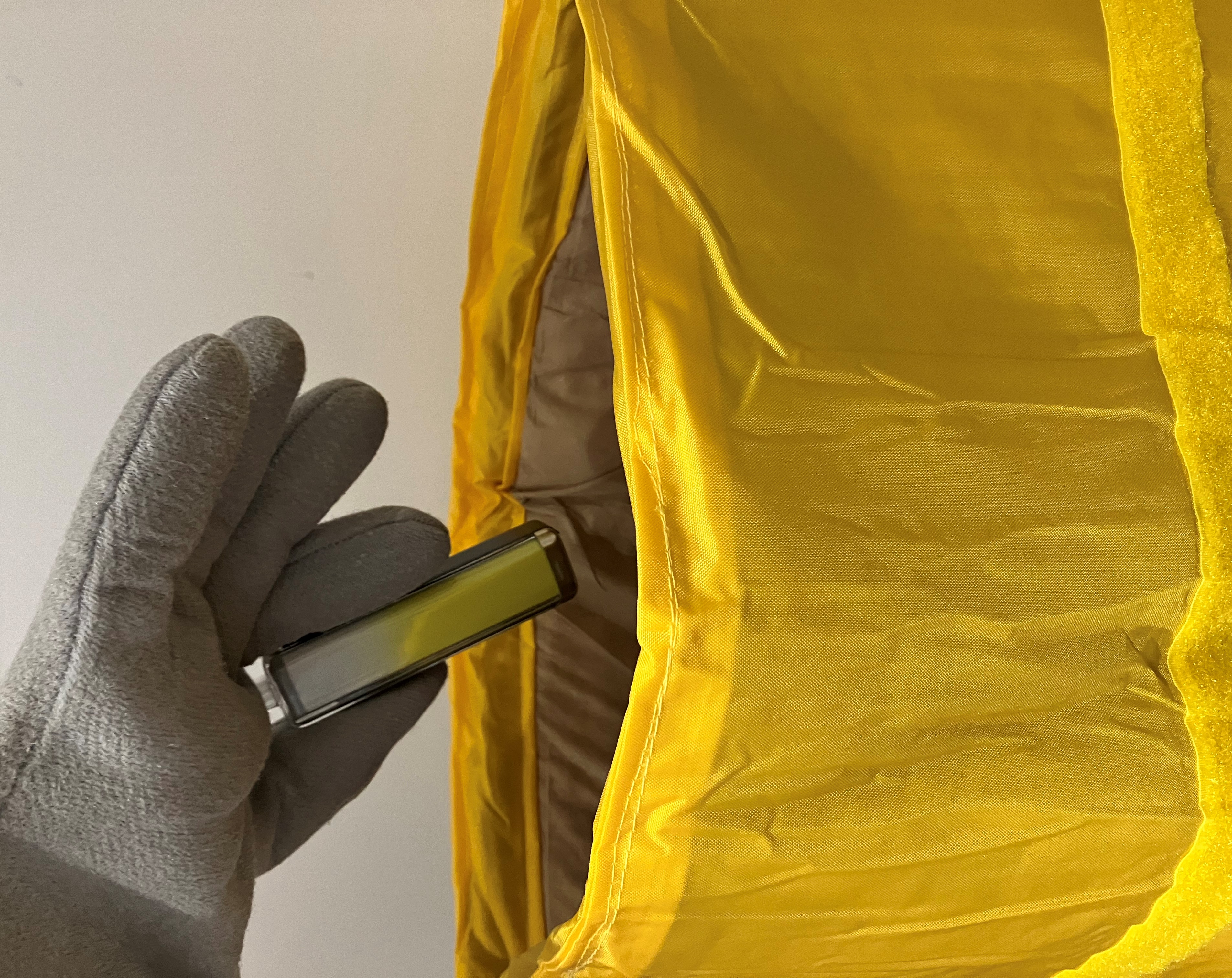Most dangerous electronic items passengers take on planes revealed

Above: AvSax lithium battery fire containment bags won the Queen’s Award for Enterprise in the UK for their innovation.
Courtesy Avsax
All our modern electronic devices are powered by lithium batteries – mobile phones, laptops, e-cigarettes/vapes and portable battery charges – but which cause most fires?
Surprisingly, two are nearing momentous figures for sparking lithium fire incidents on planes, according to the Federal Aviation Administration which regulates American airline operators and USA airspace.
The worst device for causing fires by far are portable battery chargers – also known as battery packs – which have caused 199 incidents since records began in 2006.
Second is vapes and e-cigarettes which together have sparked 99 incidents even though people cannot even smoke on aircraft.
Mobile phones come third with 61 incidents and laptops fourth with 58.
In total there have been 476 verified lithium battery incidents recorded by the FAA from March 2006 to March 2024 but figures have rocketed in recent years and have been running at an average around one a week since 2017.
However, that is just in the USA which suggests hundreds more incidents will have happened elsewhere in the world but gone unreported. No other regulatory authority releases lithium battery incident figures, including the Civil Aviation Authority in the UK.
The most recent battery charger fire incident happened on 9th March 2024, on a Sun Country Airlines flight from Minneapolis in Minnesota to Palm Springs, California, when a flight attendant’s portable battery charger began to emit an odour and the crew member noticed the device was charred. The flight attendant put the portable battery charger into a thermal containment bag and the flight continued to its destination.
The most recent vape fire happened on an American Airlines flight from Miami in Florida to Phoenix in Arizona when a passenger found a vape in the aircraft’s lavatory which had become hot. The crew were alerted and the vape was put in a thermal containment bag which meant the flight could continue to its destination.
When lithium batteries overheat they go into a chemical process called thermal runaway and when this happens it can produce enough heat – up to 900°C (1652°F) – to cause adjacent cells to overheat.
This can cause a lithium battery fire to flare repeatedly and they are then very difficult to put out. They can even explode.

Thousands of aircraft worldwide now carry AvSax lithium battery fire containment bags which won the Queen’s Award for Enterprise in the UK for their innovation – the highest award any business can get.
AvSax managing director Richard Bailey said: “It will come as quite a shock to people to learn that battery chargers and vapes are responsible for so many fires on planes. The industry is responding with an increasing number now realising they need thermal containment bags on board but many still don’t.
“This means that when an incident happens, often at 35,000ft, the enclosed space of a passenger cabin can quickly fill with toxic smoke and the crew needs to divert and do an emergency landing. This is costly to the airline company and very disruptive for the passengers, not to mention the safety implications.
“Aircraft equipped with lithium battery containment bags such as AvSax usually carry on to their destination knowing the overheating device is safely contained.”
AvSax are now on board around 16,750 aircraft operated by more than 100 airline companies worldwide, including some of the best-known names in the aviation industry.
AvSax, devised by British company Environmental Defence Systems Ltd, have been deployed in action at least 33 times on board aircraft since 2017 and on every occasion the aircraft was able to continue safely to its destination with no need to divert or make an emergency landing.
To make flying as safe as possible vapes, e-cigarettes and all personal electronic devices should be kept in the cabin, not in checked luggage, so if there is a problem with the battery the crew can deal with it. These devices should never be charged in the aircraft.











